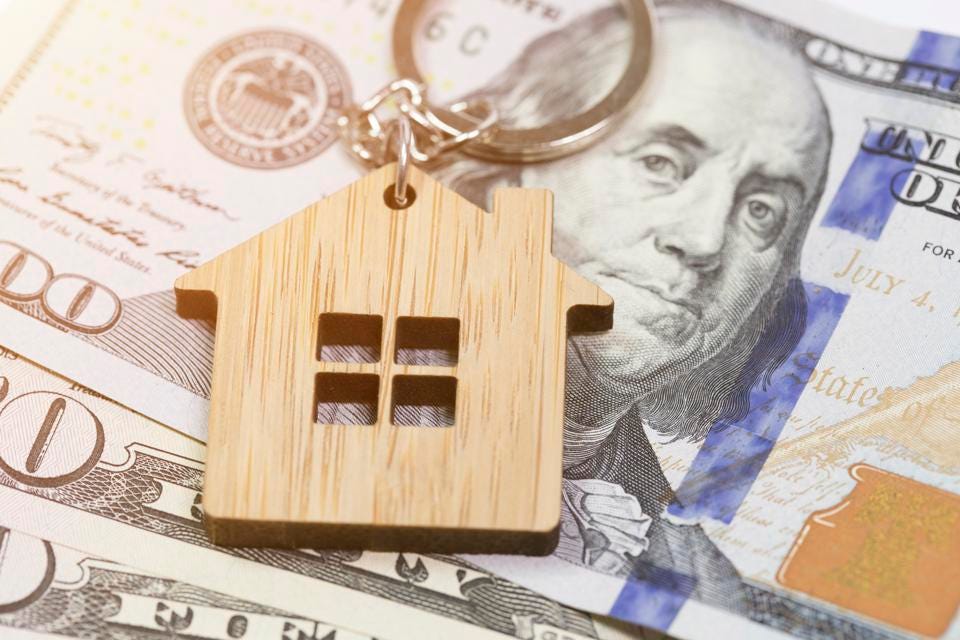What Exactly Is a Security Deposit?
Jan 16, 2024 By Susan Kelly
You can show your landlord, lender, or seller that you mean business by putting down a security deposit on their property. Depending on the agreement reached, security deposits may be refundable or nonrefundable. A security deposit is a form of insurance for the recipient, and it can be used to cover any costs associated with any losses or damages.
Methods Of A Security Deposit
The monthly rent is usually the same as the security deposit required before moving in or taking possession of the property. If the tenant causes damage to the rental unit, the landlord may deduct the cost of fixing or replacing the broken appliances from the security deposit.
Security Deposit Payment

In most cases, a security deposit is required, the first month's rent, and other moving-in costs. If you can, try to make your rent or mortgage payment before the due date. Tenants who are late with rent payments may be replaced before they even move in by other persons looking to rent the same apartment. It's best to take care of any payments, including your security deposit, as quickly as possible so you may move in without any delays.
Conditions For A Deposit On Security
A security deposit usually equals one month's rent, though it might be more if necessary. Security deposits may not cover increased rents if the escrow amount is not adjusted.
Fiduciary Bonds

Surety bonds serve as an alternative to traditional security deposits for some landlords and property management organizations. In this arrangement, you, the landlord or property manager, and a surety company enter into an agreement forming the surety bond.
Should you fail to pay rent or cover the costs of necessary repairs, the surety company is responsible for compensating the landlord. Subsequently, the surety company will seek reimbursement from you for the amount paid out, starting with any costs incurred by the management. It's important to note that unlike security deposits, any payments you make towards a surety bond are non-refundable.
Recouping Your Lost Security Deposit
The landlord should return your security deposit if you leave your rental in good condition and on time with your rent payments. However, if the landlord has to pay for an extensive cleaning, repainting, replacing damaged flooring or appliances, fixing clogged or leaking plumbing, or other repairs, you may not get your money back. If you are late with a rent payment or miss a payment altogether, the landlord has the right to keep some or all of your security deposit.
What Does A Deposit Look Like?
Depending on the area, your security deposit may be significantly higher. These states have maximum amounts set by legislation.
Alabama
The limit for a security deposit is typically capped at one month's rent. However, there are exceptions for additional deposits, which may include pet deposits, deposits required for expected modifications to the property, and deposits intended to cover costs associated with hazardous activities.
Alaska
If the monthly rent is less than $2,000, the security deposit may be up to two months' rent. Additionally, landlords may require an extra month's rent as a pet deposit. However, it's important to note that funds from the pet deposit can only be used to cover damages specifically caused by pets that are not designated as service animals.
Arkansas
Property owners with five or more rentals, or those who hire a property management firm, are limited to collecting no more than two months' worth of rent upfront. People who own five units or fewer are not subject to any restrictions, provided they handle management themselves.
California
The typical lease term for an unfurnished property is two months, whereas furnished rentals may need a three-month commitment. Tenants with waterbeds pay an extra half month's rent, and active military members can receive a one-month rent reduction.
What Else Affects Security Deposits?
The amount of a security deposit is up for grabs in most states. The final cost depends on several variables.
Credit Rating
A more significant security deposit may require tenants with worse credit ratings because of the higher risk of nonpayment or late payment. There are some rental agencies and landlords who won't rent to anyone with a credit score below a certain minimum. Prompt bill payments and eliminating debt can achieve a higher credit score.
Validation of Past Activities
Nearly all landlords verify tenants' credit and criminal records before granting a tenancy. Security deposits can also be increased.
Varying Rent Costs
The security deposit may be increased by the landlord in the event of a rent rise. Interest accrual on a savings account security deposit could offset a modest uptick in the deposit requirement. However, when the security deposit increases due to a rent increase, most tenants will need to make a supplementary payment.
The Conclusion
Landlords in some states can use security deposits to cover rent from tenants who cannot pay in full or make repairs to the property that the tenants made. Whether or not a security deposit can be used to cover the last month's rent after the tenancy ends is something that states can decide on their own.








